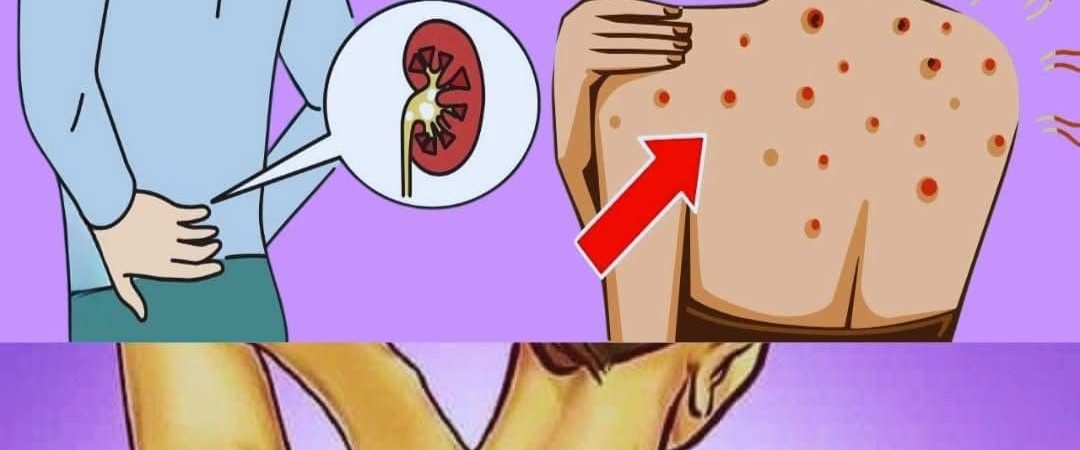If Your Kidneys Are in Danger, the Body Will Show these 10 Signs #280
Millions of individuals worldwide suffer from a dangerous disease known as kidney disease.
It happens when the kidneys are damaged and malfunctioning. The kidneys are essential for removing waste from our blood and for maintaining the proper balance of fluids and electrolytes in our body.
Early detection and treatment are essential to stop further damage and problems caused by kidney disease. Fortunately, your body will alert you when something may be wrong with your kidneys. To make sure you get medical help as quickly as possible, find out what it is and pay attention to your body.
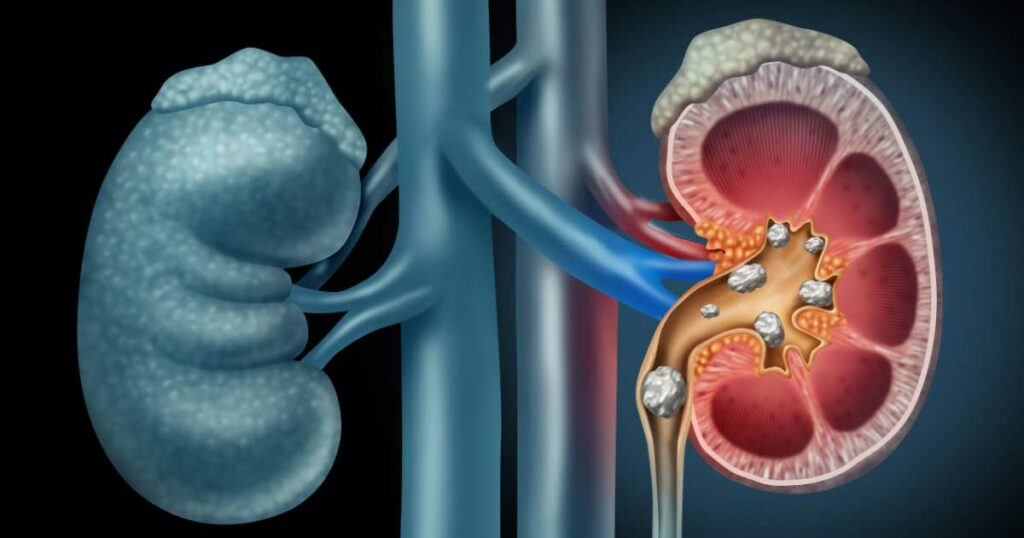
Recognizing kidney function
Located just below the ribcage on either side of the spine, the kidneys are two small bean-shaped organs. Their primary job is to filter the blood, eliminating excess fluid and waste from the body. Along with producing red blood cells, regulating blood pressure, and maintaining the proper balance of electrolytes such as calcium, potassium, and salt, the kidneys also play these roles. Healthy kidneys filter about 120 to 150 liters of blood per day, resulting in 1 to 2 liters of urine. Primarily
Kidney disease: what is it?
Renal disease, another name for kidney disease, is the result of damage to the kidneys that prevents them from working at their best. Kidney disease can have a number of causes, such as infections, autoimmune diseases, high blood pressure, diabetes, and genetics.
Kidney disease can worsen over time and result in kidney failure requiring a kidney transplant or dialysis. In order to properly manage the disease and stop future damage, early detection is essential.
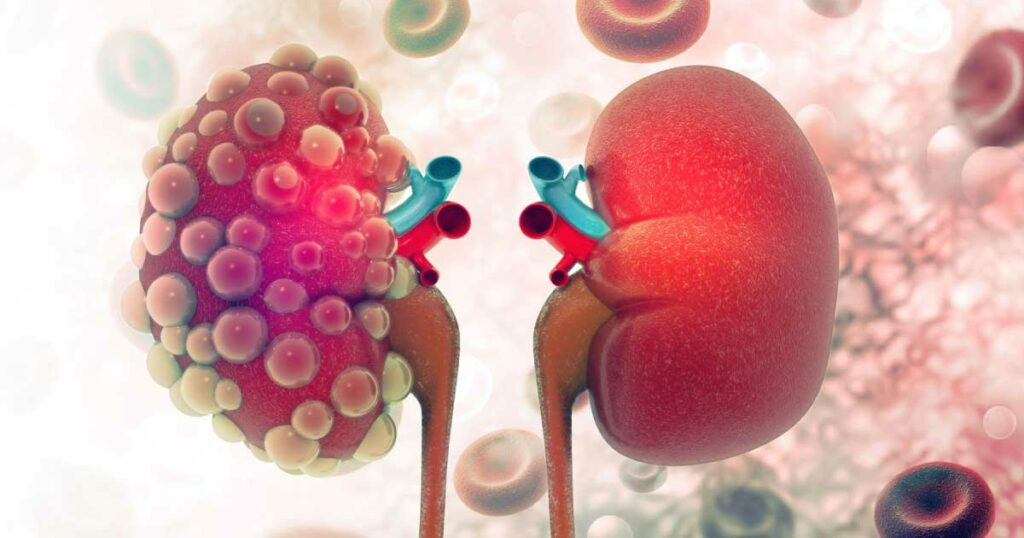
Indices of diabetic nephropathy
Kidney disease is difficult because it is often not diagnosed until it is advanced enough. Fortunately, the body alerts us when something is wrong with the kidneys. If you notice this, you can see your doctor and with any luck, the problem can be fixed before it gets worse. These ten indicators suggest that your kidneys may be at risk.
Kidney disease is difficult because it is often not diagnosed until it is advanced enough. Fortunately, the body alerts us when something is wrong with the kidneys. If you notice this, you can see your doctor and with any luck, the problem can be fixed before it gets worse. These ten indicators suggest that your kidneys may be at risk.
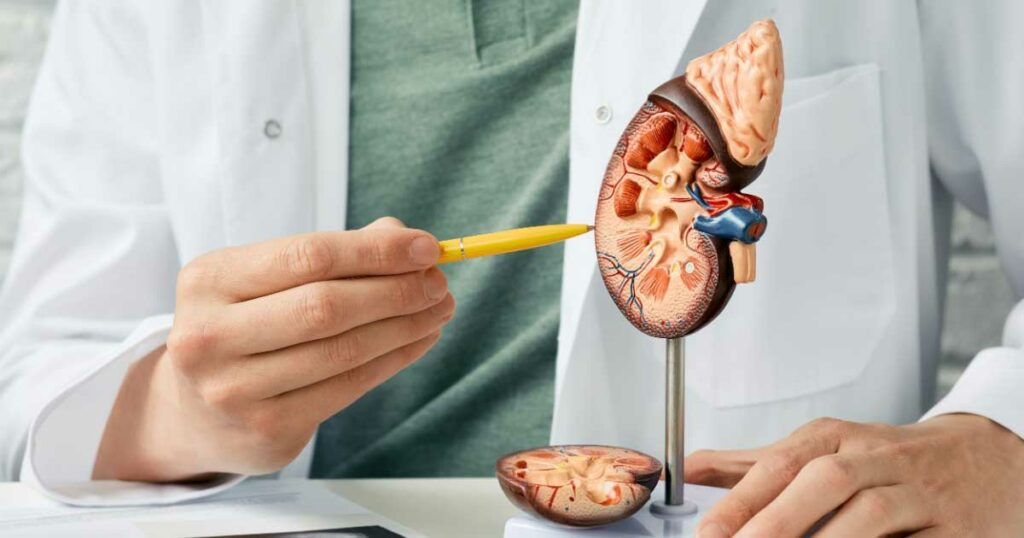
Changes in urine
Changes in urine output are among the first symptoms of kidney disease. You may experience more frequent urination, especially at night. Conversely, you may experience less frequent urination or foamy urination.
Weakness and fatigue

A low red blood cell count, or anemia, is a disorder that can result from kidney failure. This can lead to persistent exhaustion, numbness, and trouble concentrating.
3. Inflammation

Kidney disease is often accompanied by edema or excessive fluid accumulation in the body. The feet, wrists, face, and even the abdomen may swell.
4. Persistent back pain
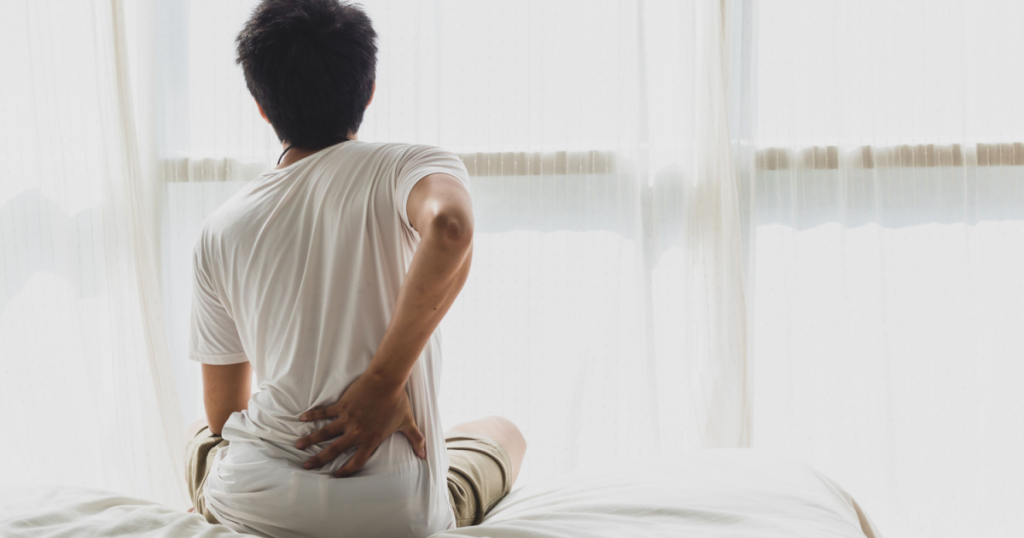
Back discomfort, which is typically felt right below the ribs, can be caused by kidney illness. There’s a chance that the pain may be intense, ongoing, and tender. This frequently coexists with an untreated urinary tract infection.
5. Inexplicable Loss of Appetite or Weight

Kidney disease could be the cause of your unexpected weight loss or decreased appetite. Loss of appetite and waste product accumulation in the body are the causes of this.
6. Queasy and regurgitating
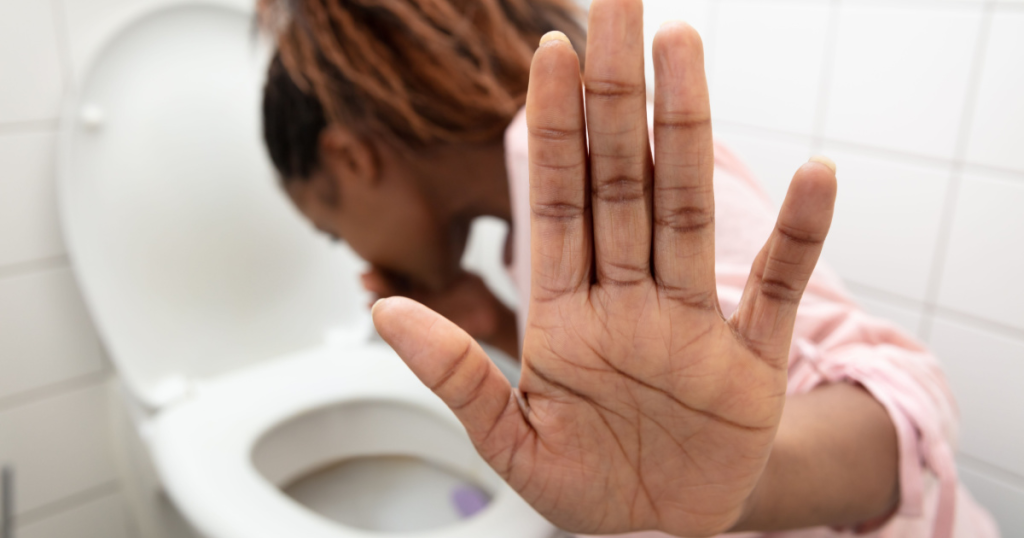
Severe nausea and vomiting fit may be brought on by kidney illness. This may be more noticeable in the morning or right after eating.
7. Trouble Falling asleep
Renal patients frequently complain about difficulty falling asleep. This could be related to frequent urination, restless legs syndrome, or muscle cramping during the night.
8. Taste of Metal in the Mouth
An enduring metallic aftertaste may be a sign of renal dysfunction. The accumulation of waste materials in the blood is the cause of this.
9. Spasms and twitching of the muscles

Electrolyte abnormalities, like low potassium and calcium, can lead to twitching and cramping in the muscles. Kidney illness may be linked to these symptoms.
Back discomfort, which is usually felt just below the ribs, can be caused by kidney disease. There is a chance that the pain may be intense, persistent, and tender. This often occurs at the same time as an untreated urinary tract infection.
10. Itchy skin
A build-up of toxins in the bloodstream caused by kidney disease can result in itchy skin. This is often not region-specific but rather global.
It is important to note that the severity and stage of kidney disease can affect these symptoms. It is imperative that you speak with a healthcare provider if you experience any of these symptoms so that they can be further evaluated and treated appropriately.
Prevention is key.
There are a number of steps you can take to keep your kidneys healthy and stop kidney disease. As always, a healthy lifestyle comes first. This means eating a healthy diet, exercising regularly, drinking plenty of water, consuming alcohol in moderation, and getting enough sleep. If you smoke, think about giving up. Pay attention to how you take your prescription and over-the-counter medications. Always follow the instructions on the bottle or the instructions given to you by your pharmacist or doctor.
Finally, if you are in doubt or have a higher likelihood of having the disease, get your kidneys tested. As a reminder, the best way to prevent the worsening of kidney disease and improve overall health outcomes is early detection and early treatment. Avoid waiting until the last minute.
In conclusion, kidney disease is a serious condition that can significantly affect your overall health if not detected or treated. The kidneys are key to filtering waste from the blood and maintaining fluid and electrolyte balance, so proper functioning is essential for good health. Early detection is the key to effective treatment of kidney disease and prevention of serious complications. Paying attention to early symptoms such as changes in urine output, persistent fatigue, and unexplained swelling can help identify potential kidney problems before they progress to more serious stages.
Prevention plays a vital role in kidney health. Adopting a healthy lifestyle – through a balanced diet, regular exercise, adequate hydration, and avoiding excessive alcohol and tobacco consumption – can support kidney function and reduce the risk of developing kidney disease. In addition, managing underlying conditions such as high blood pressure and diabetes is essential. Regular medical checkups and kidney function screenings, especially for those at higher risk, can help catch problems early and ensure early intervention.
By staying informed and proactive about kidney health, you can take steps to prevent kidney disease or effectively manage it if it does occur. Early intervention and lifestyle modification are powerful tools to maintain kidney function and promote overall well-being.
